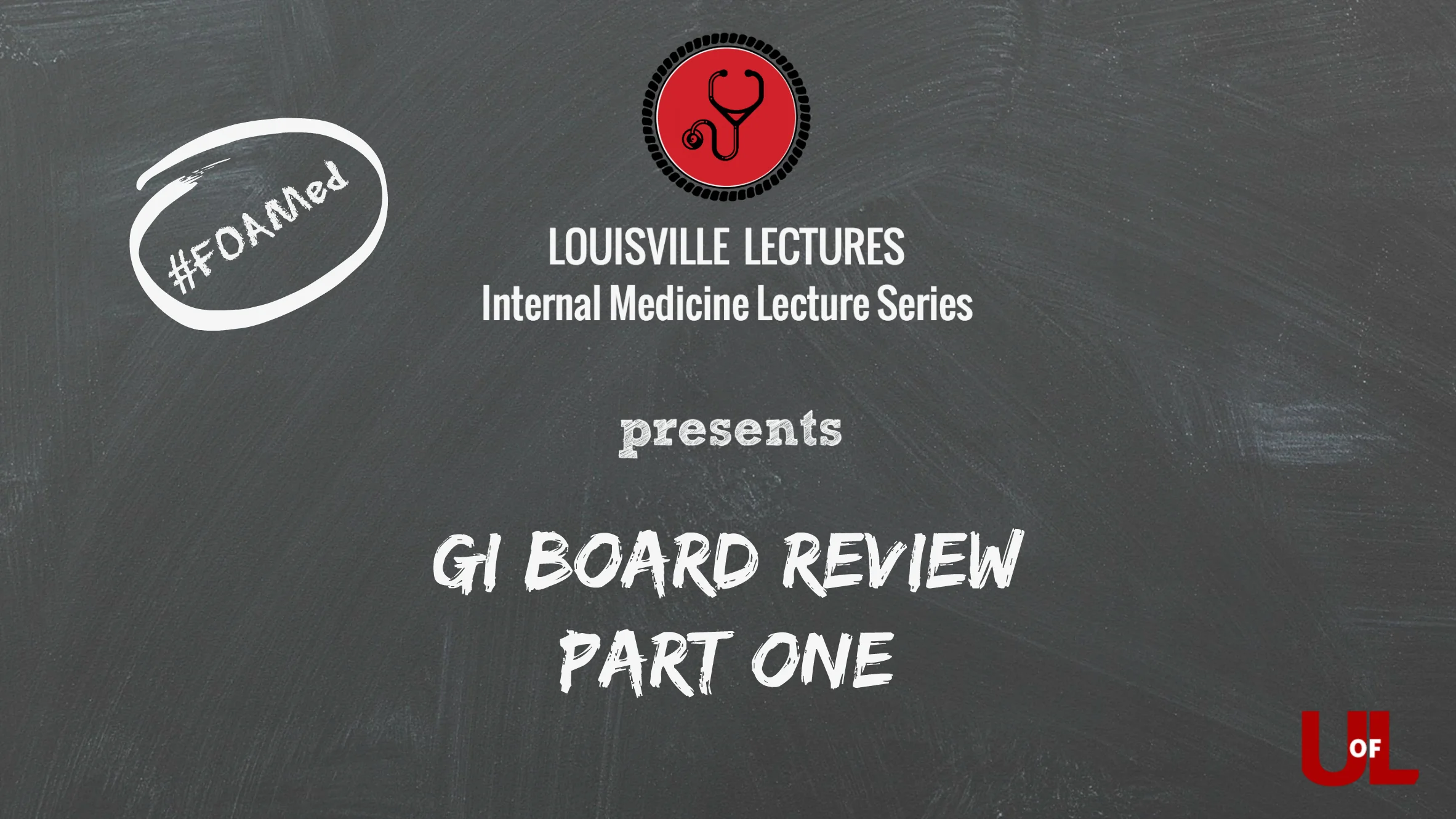inpatient medicine
Dr. Nina Vasavada gives an Acid Base Core Lecture by first reviewing dietary sources of acids and alkali. She then reviews renal and non renal mechanisms of maintaining acid/base equilibrium. After, she discusses practice questions.
Dr. Omer delivers part two of a GI Board Review. This talk includes various cases as well as questions and answers. Check out part one from last week!
Dr. Omer delivers part one of a GI Board Review. This talk includes various cases as well as questions and answers.
Stay tuned for Part Two next week.
Dr. Christine Bridges presents "Advanced Care Planning" by first defining advanced care planning. She then discusses the available documents, billing and coding, as well as clinical pearls.
Dr. Shahab Ghafghazi presents "Valvular Heart Disease" and focuses mainly on aortic stenosis through various definitions and case reports.
Dr. Craig McClain presents "Management of Alcohol-Related Hepatitis" through various case studies, as well as an overview and diagnosis. He then discusses research findings related to alcoholic hepatitis and after, Dr. McClain explains the therapies being validated for the treatment of AH, their complications, as well as transplantation.
Dr. Bilal Jalil presents part one of three talks on Point of Care Ultrasound. He first discusses the need to take care of the ultrasound machine by keeping it clean and placing probes onto their side cups. After, Dr. Jalil goes into the history of the ultrasound and then into Point of Care Ultrasound.
Dr. Anupama Raghuram presents the "Basics of HIV Infection" by first discussing the epidemiology, pathogenesis and transmission of HIV infection. After, she presents the diagnosis, treatment, and prevention of HIV infection.
Dr. Nina Vasavada presents Hypertension by first discussing a general approach to ambulatory patients with elevated blood pressure. She then presents primary versus secondary hypertension, and ends her discussion on hypertension management in special populations.
Dr. Lina Mackelaite presents Acute Kidney Injury by discussing everything that causes AKI and how to treat it. Using multiple cases, Dr. Mackelaite discusses AKI in a way that is applicable to real life circumstances as well as boards.
Dr. Nancy Kubiak presents an Introduction to Writing Case Reports by first identifying a clinical case appropriate for presentation. She then discusses learning objectives that emphasize the main teaching points of the case. After, she recognizes a "backwards approach" to writing case reports.
Dr. Bilal Jalil presents 'Oxygen Delivery and Devices" by first building and narrowing the differential for hypoxemia. He then discusses the factors that affect oxygen delivery as well as the nasal cannula flow and Fi02 relationship. Finally, he finishes with a talk on oxygen beyond nasal cannula.
Dr. Shanna Barton is in her fourth year of residency for Medicine Pediatrics at the University of Louisville. In this presentation, she discusses the transition of care for patients in pediatrics to medicine as adults and how residents can help during this process. She does this through various cases as examples.
Dr. Anupama Raghuram discusses "Hepatitis A: An Update in the Context of an Outgoing Multi-state Outbreak" by first reviewing the epidemiology and pathogenesis of hepatits A virus (HAV) infections. She then presents the clinical manifestations and management of HAV infections. After, Dr. Raghuram addresses strategies for prevention of transmission in a variety of clinical settings and finally, reviews data on the ongoing multi-state HAV outbreak in the US.
Dr. Sathya Krishnasamy presents an Endocrine Board Review for residents at the University of Louisville through a number of case questions.
Dr. Christian Furman presents "Advance Care Planning and the Medical Orders for Scope of Treatment (MOST) Form" by first discussing its importance. She the identifies the techniques for a Goals of Care (GOC) Discussion. After, she completes the Medical Orders for Scope and Treatment Form and then documents Advance Care Planning and the MOST form in the EHR.
Dr. Chris Migliore presents The Approach to Chest Pain by first discussing the epidemiology of chest pain or cardiac presentations. He then lists and discusses the important symptoms of chest disease. After, he reviews elements of the chest physical exam and finally, he reviews the fundamentals of clinical reasoning concerning chest pain.
Dr. Vivek R. Sharma presents "Hemophilia in the 21st Century: Current Practice and Future Directions" by first discussing the history of hemophilia. He then discusses management throughout the years and finally the remaining challenges.
In this presentation Dr. Craig McClain discusses nonalcoholic fatty liver disease as the #1 cause of liver disease. He then presents various cases and current treatment for patients with NASH as life style modifications, vitamin E, HCC monitoring, and more.
Dr. Eleanor Lederer presents a Nephrology Board Review for residents at the University of Louisville.
Dr. Said Chaaban presents Interstitial Lung Disease by discussing the historical and physical history as well as lung exams. He then discusses risks, causes of death, disease progression and various treatments.
Dr. Missy Potts discusses the wide variety of procedures for diagnostic and therapeutic purposes performed by interventional radiologists. She then explains how knowledge of the procedure indications and details can help triage the patient and provide the patient with the best procedural option. Finally, Dr. Potts emphasizes the importance of physicians and radiologists working together to provide the safest and most appropriate treatment.
In this presentation, Dr. Michael Wellner discusses Hepatitis by first identifying patients with alcoholic hepatitis who are at high risk for poor outcomes. He then recognizes the different viral hepatitides as well as when and whom should receive treatment. After, he describes autoimmune hepatitis and finally, recognizes acute liver failure and which patients need urgent or emergent GI evaluation.
Dr. Brittany Chapman begins her discussion with a few definitions like provoked and unprovoked seizures, as well as epilepsy. She then details the work up for seizures along with treatment. After, she reviews special considerations for women with epilepsy.
Dr. Demetra Antimisiaris is discusses polypharmacy, how it can be a geriatric syndrome, and different factors in medication-use practices leading to unintentional medication-related harm. She then presents a systematic approach to management of polypharmacy as well as the potential impact of proactive medication management.
Dr. Martin Huecker presents "Heroin in the Hospital Patient" by first discussing heroin's impact on public health. He then describes analgesia in opioid-dependent patients and ends his talk with specific clinical presentations.
In this presentation, Dr. Ferguson discusses how to define when Syncope is an issue and needs to be admitted as well as identifying rare manifestations of serious and potentially fatal heart conditions. He does this with the use of many different ECGs.
In this presentation, Dr. Ryan Hurt discusses malnutrition by first describing the concept of nutritional risk in both hospital and ambulatory patients. He then explains how to recognize the complications associated with sarcopenia in elderly populations as well as different strategies to diagnose and treat patients at high nutritional risk.
Dr. Nathan Spell discusses Healthcare Quality and Safety by first explaining his perspective as CQO on Emory's improvement journey as well as his perspective as a medical educator on learning improvement (QI) skills. After, he gives multiple examples of QI work to illustrate the learning objectives.






























Dr. Malika Rawal presents Adrenal Insufficiency by first answering the question: What Is Adrenal Insufficiency? She then reviews its causes as well as some basics of cortisol. After, Dr. Rawal discusses testing and treatment.